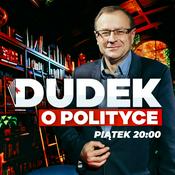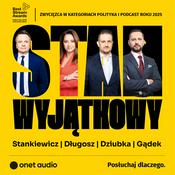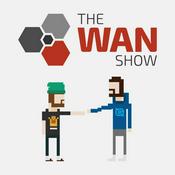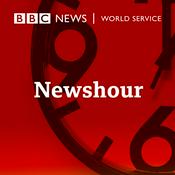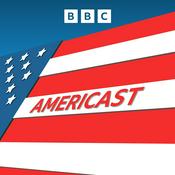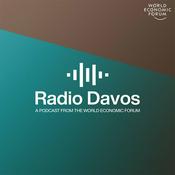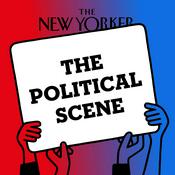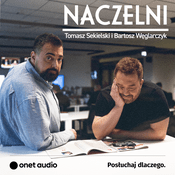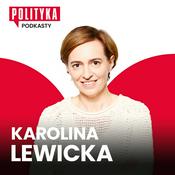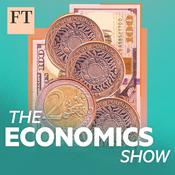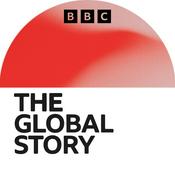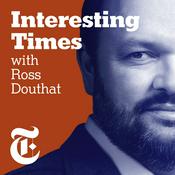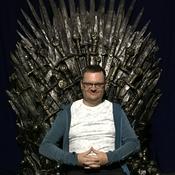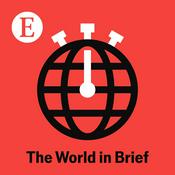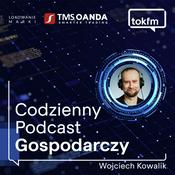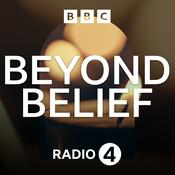373 odcinków
- Following the dramatic capture of the President of Venezuela and his wife by US special forces on January 3rd, The Briefing Room asks what’s next for Venezuela? Nicolas Maduro and Cilia Flores have been indicted on drug trafficking and weapons charges in a New York court while in Venezuela the deputy president, Delcy Rodriguez has been sworn in as the country’s interim president. Meanwhile Donald Trump says he is in charge of Venezuela. David Aaronovitch and a panel of Latin American experts discuss who will actually govern Venezuela, what’s going to happen with the oil industry and what the implications are for the rest of the region.
GUESTS
Hal Hodson, Americas editor, The Economist
Christopher Sabatini, Senior Research Fellow for Latin America at Chatham House
Vanda Felbab-Brown Senior Fellow Foreign Policy, Brookings Institution
Presenter: David Aaronovitch
Producers: Caroline Bayley and Kirsteen Knight
Production Co-ordinator: Maria Ogundele
Sound Engineer: James Beard
Editor: Richard Vadon - As both the year and the current series of The Briefing Room draw to a close, Europe and much of the world have been digesting a lengthy document outlining the Trump administration’s view of foreign policy. The National Security Strategy covers much of the globe but extra special vitriol was reserved for Europe with dire warnings that the continent is facing “civilisational erasure” partly due to immigration. At the same time the growing influence of “patriotic European parties” (those on the far right) is welcomed. But there’s more - the US wants to dominate the “Western Hemisphere” - the Americas and countries on its doorstep. It wants more trade with Asia and China, as well as the Middle East. But there are notable absences -there's no talk of a significant threat from either Russia or China. David Aaronovitch and guests discuss what all this means and ask how worried we, in Europe, should be about the current US view of the world?
Guests:
Frank Gardner, BBC Security Correspondent
Shashank Joshi, Defence Editor, The Economist
Rebecca Lissner, Senior fellow for U.S. foreign policy at the Council on Foreign Relations and lecturer, Jackson School of Global Affair, Yale University.
Dr Christoph Heusgen, Former Chairman Munich Security Conference and former German Ambassador to United Nations
Presenter: David Aaronovitch
Producers: Caroline Bayley, Kirsteen Knight, Cordelia Hemming
Production Co-ordinator: Maria Ogundele
Sound engineer: Neil Churchill
Editor Richard Vadon - In a few days time resident doctors -who used to be known as junior doctors - will go on strike. Just before Christmas and with flu on the rise. This will be the 14th strike by the doctors’ union since March 2023. The ostensible reason is pay but coming up behind it as an issue for younger doctors is the question of their futures- they're very unhappy about their working conditions and their career paths. David Aaronovitch and guests discuss what's going on and ask what the problem is with the way we in Britain train our doctors?
Guests:
Hugh Pym, BBC Health Editor
Sir Andrew Goddard, Consultant Gastroenterologist
Professor Martin McKee, Professor of European Public Health, London School of Hygiene and Tropical Medicine
Mark Dayan, Policy Analyst, Nuffield Trust.
Presenter: David Aaronovitch
Producers: Caroline Bayley, Kirsteen Knight, Cordelia Hemming
Production Co-ordinator: Maria Ogundele
Sound Engineers: Michael Regaard, Gareth Jones
Editor: Richard Vadon - In her budget the Chancellor increased the state pension by 4.8 % in line with the government's triple lock formula. It was good news for pensioners but is it good news for the young? A constant background to spending and economic decisions for well over a decade now has been an argument about generational injustice. That the young are getting poorer. David Aaronovitch and guests look at the facts and ask whether the old are robbing the young and if so what should be done about it?
Guests:
Bobby Duffy, Professor of Public Policy at King’s College, London
Sophie Hale, Principal Economist, Resolution Foundation
Xiaowei Xu, Senior Research Economist at the Institute for Fiscal Studies
Jane Falkingham Professor of Demography, Southampton University
Presenter: David Aaronovitch
Producers: Caroline Bayley, Cordelia Hemming, Kirsteen Knight
Production Co-ordinator: Maria Ogundele
Sound Engineer: James Beard
Editor: Richard Vadon - President Trump wants an end to the war in Ukraine. The Ukrainians want peace too - but not at any cost. The past week saw the emergence of a leaked US 28 - point- plan which was wholly unacceptable to President Zelensky and European leaders. But how it originated and why it looked like a Russian wish list has led to intense debate. ( It included Ukraine giving up territory it still holds in the east, as well as the area already occupied by Russia, a cap on the Ukrainian army of 600 thousand, a permanent ban on NATO membership for Ukraine and an amnesty on all war crimes. ) Talks hastily took place in Europe and Abu Dhabi and there’s now a revised version still to be agreed with Russia. President Zelensky wants to meet President Trump to agree the most sensitive issues.. So why did this latest attempt at peace in Ukraine emerge through a leaked document which many assumed had come straight from Russia? How has Europe and Ukraine responded and could it really mean an end to nearly four years of war?
Guests:
Angela Stent, Senior Fellow at the American Enterprise Institute and former National Intelligence Officer for Russia and Eurasia.
Sir Lawrence Freedman, Emeritus Professor of War Studies at King’s College, London
Christopher Miller, Financial Times’ Chief Ukraine Correspondent
Sir Laurie Bristow, former UK Ambassador to Russia and President of Hughes Hall, Cambridge.
Presenter: David Aaronovitch
Producers: Caroline Bayley, Cordelia Hemming, Kirsteen Knight
Production co-ordinator: Maria Ogundele
Sound Engineer: James Beard
Editor: Richard Vadon
Więcej Wiadomości podcastów
Trendy w podcaście Wiadomości
O The Briefing Room
David Aaronovitch and a panel of experts and insiders present in-depth explainers on big issues in the news
Strona internetowa podcastuSłuchaj The Briefing Room, Raport o stanie świata Dariusza Rosiaka i wielu innych podcastów z całego świata dzięki aplikacji radio.pl
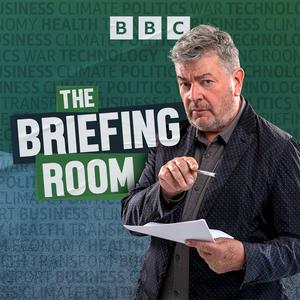
Uzyskaj bezpłatną aplikację radio.pl
- Stacje i podcasty do zakładek
- Strumieniuj przez Wi-Fi lub Bluetooth
- Obsługuje Carplay & Android Auto
- Jeszcze więcej funkcjonalności
Uzyskaj bezpłatną aplikację radio.pl
- Stacje i podcasty do zakładek
- Strumieniuj przez Wi-Fi lub Bluetooth
- Obsługuje Carplay & Android Auto
- Jeszcze więcej funkcjonalności


The Briefing Room
Zeskanuj kod,
pobierz aplikację,
zacznij słuchać.
pobierz aplikację,
zacznij słuchać.


